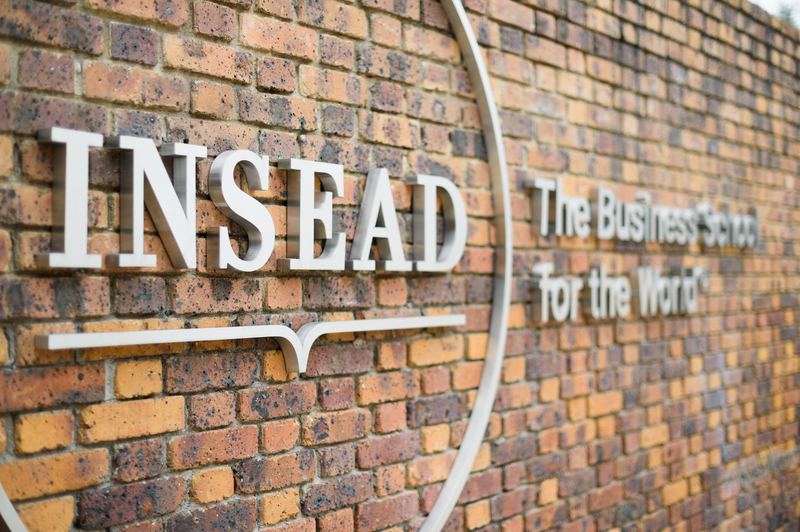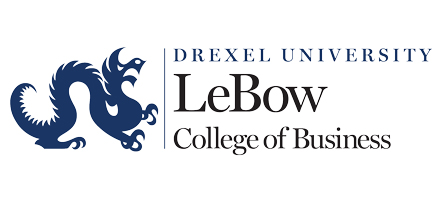
Last week, INSEAD launched The Learning Hub, a mobile app that puts the business school in your pocket.
INSEAD, a business school known for its innovation, last week launched another pioneering move in the reinvention of lifelong learning: a first-of-its-kind subscription-based mobile app called INSEAD Learning Hub.
The platform combines video and online content; live discussions, events, and speakers; community building; and eventually credentials in one all-inclusive app. It’s yet another first for the business school that pioneered the one-year MBA as well as company-specific executive programs, notes Peter Zemsky, INSEAD deputy dean and dean of innovation.
“By putting INSEAD in your pocket, it gives learners access to impactful tools to reinvent themselves, creates opportunities for engagement; and empowers learners to think, act and work differently,” Zemsky says. “Its unique design is an excellent fit for busy executives looking to build the skills and competencies needed to thrive and drive impact today and tomorrow.“
INSEAD IN YOUR POCKET
While still in the experimental stage, content and features will be developed and released over time. The first phase of the hub’s rollout, available immediately, is offered now for free on the Apple and Google app stores. The second phase will introduce a subscription service costing somewhere around $10 a month. Its primary audiences will include executives, alumni, and students who want to keep their connections to the school.
The hub will allow users to:
- Tap into the global INSEAD community and explore thought leadership from INSEAD faculty, alumni, practitioners and academics, curated and personalized for the user.
- Get free access to the latest and most relevant insights on how businesses can contribute to a nature-positive world, through unique content, covering topics including regenerative business, nature finance, and nature-positive governance collated and curated by INSEAD Hoffmann Global Institute for Business & Society in collaboration with World Economic Forum, and leading organizations – Capitals Coalition, rePLANET and Systemiq Ltd.
- Get priority access to the research and insights from INSEAD Knowledge, Digital@INSEAD and research centers such as The Rudolf and Valeria Maag INSEAD Centre for Entrepreneurship, Emerging Markets Institute, the Africa Initiative, among others.
- Participate in Hub Live, a series of regular live online sessions with thought leaders on contemporary topics.
- Earn “steps” on their way to scaling peaks of learning that come with INSEAD benefits with different milestones. Eventually these will translate into certification pathways.
The hub is INSEAD’S response to an increasingly complex and changing business landscape. Executives who hope to succeed in the future of work will need continuous lifelong learning in formats that fit in their lifestyles, the school says in a release.
Poets&Quants For Execs spoke with Zemsky to learn about the hub in more detail. Our conversation is presented below, edited for length and clarity.

INSEAD, which bills itself as The Business School of the World, has pioneered several innovations in exec ed and business education
Tell us a bit about how the idea originated. Was there a need in the market you were trying to fill?
Things have been percolating for a number of years. We’ve been very active in online education since 2014 and we have done a lot of company specific stuff, so we’re very much in touch with the corporate education market. We knew that there’s interest in how you can spread education out better over time, and how you can make it more learner driven.
Then, definitely in COVID, you could really see the acceleration of consumption on demand; behavior and expectations changed everywhere. At INSEAD, we really used COVID to up our game in terms of lifelong learning for our alumni with lots of webinars, lots of live events, etc. Some of that has obviously come back down some, but it has been pretty sticky. Because our alumni are all over the world, there is a hunger to connect with the school online.
These were the streams that were coming together. To be able to see that we could respond to a really big trend in learning behavior, while serving these two big audiences — our big exec ed audience and our 60,000 alumni — it was like, “Okay, there’s something to do here.”
Who do you envision being the primary users? People who have a relationship with INSEAD? Or do you think that it will attract people who have never maybe come to you for an exec ed course?

Peter Zemsky
I think both. Just to be clear up front: This, in the classic spirit of experimentation, is something we want to get out in the market. More than half baked, but not fully baked, and to start seeing where it resonates and use that to influence how we develop the content, how we developed certification, and such. That’s an important caveat to everything. We’re not launching with a big marketing budget; This is emergent, looking for organic word of mouth.
We’re starting with, I think, two big audiences: One is the alumni. This will be a membership benefit for anyone who joins our Alumni Association. Secondly, we touch 10,000 executives in person, and at least that many online, and this will be part of their experience. Then we’ll see where it goes from there. But of course, the wonderful thing about digital is, they’re random people finding us on the App Store and checking us out and that’s beautiful, too.
So, this is available now on the app stores?
Yes, it’s just out there. We haven’t put a paywall up yet. We’re really trying to get as many people to experience it and give us feedback. So you just search for INSEAD Learning Hub on the Google App Store, the iPhone App Store, and it’s yours for now.
Are you thinking about price points yet? I know the press release said that would be rolled out in phases.
We’re thinking for the next academic year, about €10, $10 a month. Part of the idea is to make it more accessible to allow people to stay close to the school — exec ed students and people who don’t usually have access can be part of our community.
What kind of content do you envision? How do you see people using it?
The great thing about being in people’s pockets is you can see which type of content is appealing to them, both subjects and formats, and you can adapt over time. Of course, from what we’ve previously seen, short articles and short videos are quite popular with our audience. Obviously, podcasts as well. We haven’t traditionally done as many of those but we’re looking to do more.
In terms of topics, again, there’s all the classic stuff we do around innovation and leadership and organizations, but we’re also thinking about using this for hot topics. We have a big section on there now around Nature Positive.
It’s also about where you source content. Part of this is, of course, taking our faculty outputs and making that accessible. If you really think that management practice is changing really fast, you also want to be able to tap into people who are creating the new practice. So it’s about partners; We have an amazing alumni network, so it’s about finding people who are doing amazing things. Like, for example, the CEO at Decathlon, who’s all out in front in terms of closed loop supply chains, so trying to get their voices on as well.
One of the aspects I found most interesting was the possibility of these certification pathways. Can you talk about that?
This is for sure one of the areas that we’re looking to experiment in and see what resonates with people. We have some experiments planned, but let me talk about the big picture in why we think it’s important. Back when MOOCs came out, we really didn’t go with the edX and Coursera vein, but we ended up working very heavily in the corporate space. We created big programs for Microsoft, Accenture, etc., early on where we really looked at the possibility to take learning from videos and so on, and then immediately get the learners to apply it. That was an amazing experience for us. We got alumni to act as learning coaches and help to evaluate; so it was a very positive experience that kind of emerged in our work with these companies.
So here, thinking about the Learning Hub, certification is important for two reasons: Obviously, people like it because it validates what they’ve done. But for me, at least as important, is it helps people motivate. I mean, if you do the work, and you have the badge or you have the cert on your LinkedIn profile, that’s nice. But, at the end of the day, what have you really internalized and learned? That’s the real question.
We know motivation is a big issue. As wonderful as online learning is, it can also be lonely. It’s just you and your phone, and there’s your favorite game and your favorite social media platform sucking your time out. You know it’s better for your career if you keep learning, and going from badges to certifications helps people motivate themselves.
The challenge is you can’t give a meaningful certification for just watching videos. We can’t really certify for knowing how to click an article or hit play on the media player. So the type of competencies we look to develop — both rigorous and relevant — is to give some simple tools and concepts and ways of thinking about management challenges. Then, what you need to do is take that and apply it. What we’ll be experimenting with to get INSEAD certification is that after you’ve watched the material, have you interacted with it? Did you make some comments, did you share? And so the first thing you would submit is just a short document around your reactions.
The second thing would be to really go back to prior experience that you had. Again, we’re really targeting people out there doing the work. We’re not necessarily looking at the first timers, but people who have had some experience, or who have seen their organization wrestle with some of these issues. What happened? What did you learn? How did the stuff play out? Look back, and show that you can make sense of the material, and write a short essay – hopefully not written by Chat GPT – to demonstrate you’ve thought about the issue. Maybe you’ve analyzed an experience that didn’t go so well in your organization, and you make a proposal for what you think your organization could do. The key thing is, yes, you’ve consumed a bunch of content, but we want to encourage people to put it into action.
What kinds of certifications are in the conversation right now?
We’re starting at the beginning, so not so much degrees. But we have a set of certifications that do quite well on our online courses, so I think we’d be looking to do similar things through the Learning Hub.
We also do quite well combining things. So, someone might complete an online course on strategy for disruption, and now they’ve built these other skills on the Learning Hub around innovation, and we’ll wrap that up into a nice sort of up-to-date, ongoing cert.
One of the things we’d like to emphasize is that, in this channel, we’re not certifying base knowledge. It’s not going to deliver marketing 101, but will offer content around marketing for sustainability. It’s going to be more on badging and certifications on those kinds of emerging topics.
This conversation around badges and certifications reminds me a bit of online micro credentialing ventures, like Scott Galloway’s Section 4, which are becoming more and more prevalent. Is the Learning Hub trying to not necessarily compete here, but at least keep your foot in this space?
The underlying trend of people’s needs changing, their openness to learning on the fly, the pace of change is hitting everybody. And for sure, we’re aware that other people are experimenting. At this point, we’re being pretty proactive; We don’t see any particular threats yet, but it could come. I guess, in the back of our heads, that’s a piece of it.
One of the scenarios when we did the big online portfolio was this could cannibalize us. In the end, though, we saw that online is not so much a substitute but a compliment. We’re absolutely finding today that when we do big, complex exec ed solutions for multinationals, it’s got a face-to-face component, it’s got live virtual, and it’s got recorded online content. So, really, to give that premium educational experience in 2024, we think you need to be in someone’s pocket too.
You said in the release that INSEAD had pioneered a number of other firsts in this space: the first one-year MBA program, the first company-specific exec ed program, and the first customized online programs, for example. Do you see this as maybe something other schools will have to follow as well?
You know, imitation is always the best compliment. We certainly welcome other people looking at this format. It adds weight to what we’re doing. Plus also we’re not adverse to learning what other people do in the space. Innovation is hard; You can’t have all the ideas and you can’t try all the ideas.
It’s still early days, but the excitement in our community, what the reaction from corporate HR indicates, I’m cautiously optimistic that this will be a really important strand of management education, not just for ed techs but for business schools.
What’s the faculty response so far? I suppose they’ll be expected to create the bulk of the content for this.
First of all, we’re really blessed at INSEAD with faculty who are not only obviously passionate and deep on their topic, but really love to communicate about it.
Another thing is what has COVID done for us? Every educator is used to talking to a camera now. It’s not a big deal anymore. Traditionally, if a professor came out with a piece of research, we had a team that would write up a knowledge article, and that’s part of what we are leveraging in the hub. Now we’re asking, in addition, that the professor record a 10-minute video or facilitate a 10-minute interview with a relevant practitioner.
Of course, the flip side is, there’s way too much content today. What concerns me is that everyone is making content and everybody wants to be a creator. That’s just the world we live in. So, we have to maintain a high level of curation, quality, and engagement around it. I think that’s our challenge to stand out in this avalanche of content.
What has you most personally excited about the Learning Hub’s potential?
I’ll take off my dean of innovation hat and put on my faculty hat for this one. So I teach big online courses. I have thousands of students a year, and the ability for me to stay relevant with them, to stay in touch with them, is super exciting.
One of the things we will do differently than many other platforms is we’ll have live sessions. To be able to connect with former students a year later, or every year, and engage them and have the sort of back and forth the hub provides will make it richer for me as a faculty member.
DON’T MISS: EMBA SPOTLIGHT: AT UGA TERRY, AN EXECUTIVE MBA WITH 18 YEARS AVERAGE WORK EXPERIENCE AND HOW DOCTORATE-LEVEL EXECUTIVES CAN SUCCEED IN TODAY’S BUSINESS LANDSCAPE




